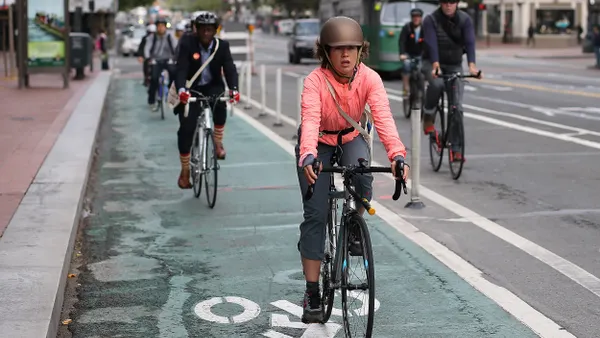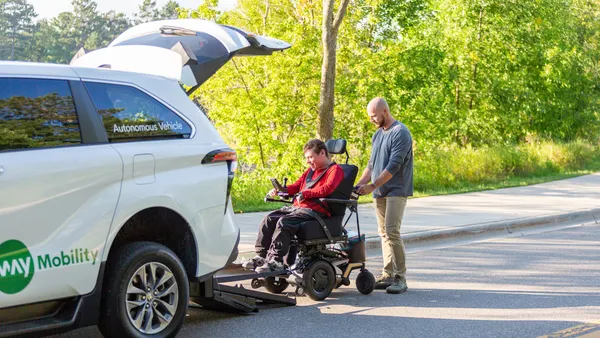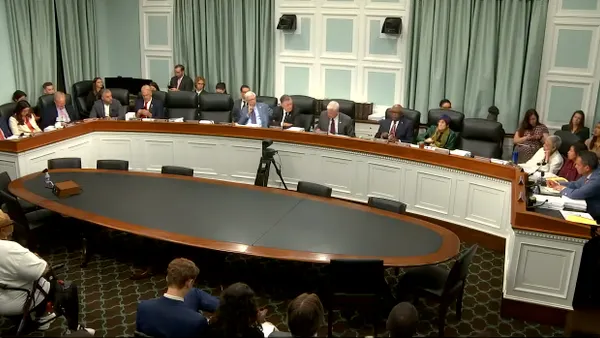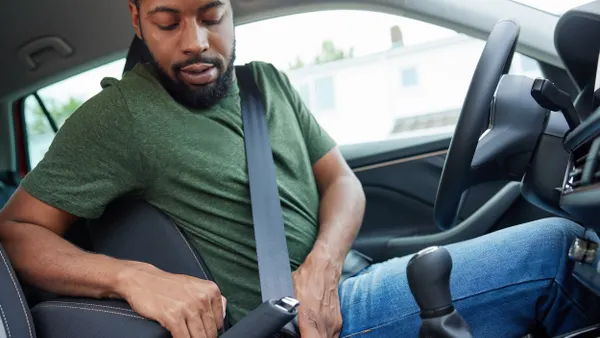Dive Brief:
- Micromobility company Skip filed a petition for Chapter 7 bankruptcy last week, a move that means it will sell off all its assets to pay its debts.
- Skip filed the petition in the United States Bankruptcy Court for the Northern District of California with Mohit Wadhera, its former chief technology officer, listed as the authorized representative of its debtor. A meeting for Skip's creditors is scheduled for Sept. 8. The company says in its petition it has liabilities worth between $10 million and $50 million, and assets worth $50 million to $100 million.
- This petition marks the first bankruptcy filing by a well-known scooter company with a footprint in multiple cities. The move also comes after Helbiz acquired Skip late last year, with Helbiz saying at the time that it intended to expand Skip's brand, technology, operations team and shared scooter fleet as part of its own global expansion strategy.
Dive Insight:
Other notable bankruptcies in the micromobility sector include Unicorn, which pledged to sell customers a personal scooter at $655 each, but did not deliver on that promise and went bust in 2019. Last year, electric skateboard company Boosted also went defunct and saw much of its assets acquired by Lime.
Chapter 7 bankruptcy means Skip's assets will be liquidated to pay off its creditors, but that process may take some time. Both Skip and Helbiz did not respond to repeated requests for comment. As of Monday, scooters were not available in the app in San Francisco or Sacramento, while they were still available for rent in Jacksonville, Florida; Miami; Oklahoma City; Washington, D.C.; and Waterloo, Iowa. A Smart Cities Dive reporter saw Skip scooters still on the streets of Washington, D.C. on Monday morning.
The company is represented in its bankruptcy proceedings by Robert Harris, an attorney at Binder & Malter LLP, which describes itself as "a Silicon Valley law firm specializing in the areas of bankruptcy, insolvency, and debtors' and creditors' rights." Harris did not respond to requests for comment.
At the onset of the coronavirus pandemic, there were questions about whether scooters would survive. But the majority of those fears appear to have been confounded as micromobility companies have stayed in cities and some look to increase their offerings. Bird is set to go public on the New York Stock Exchange in the second half of this year and said that will enable it to move beyond scooters, while Lime has already flexed its muscles by unveiling shareable mopeds.










